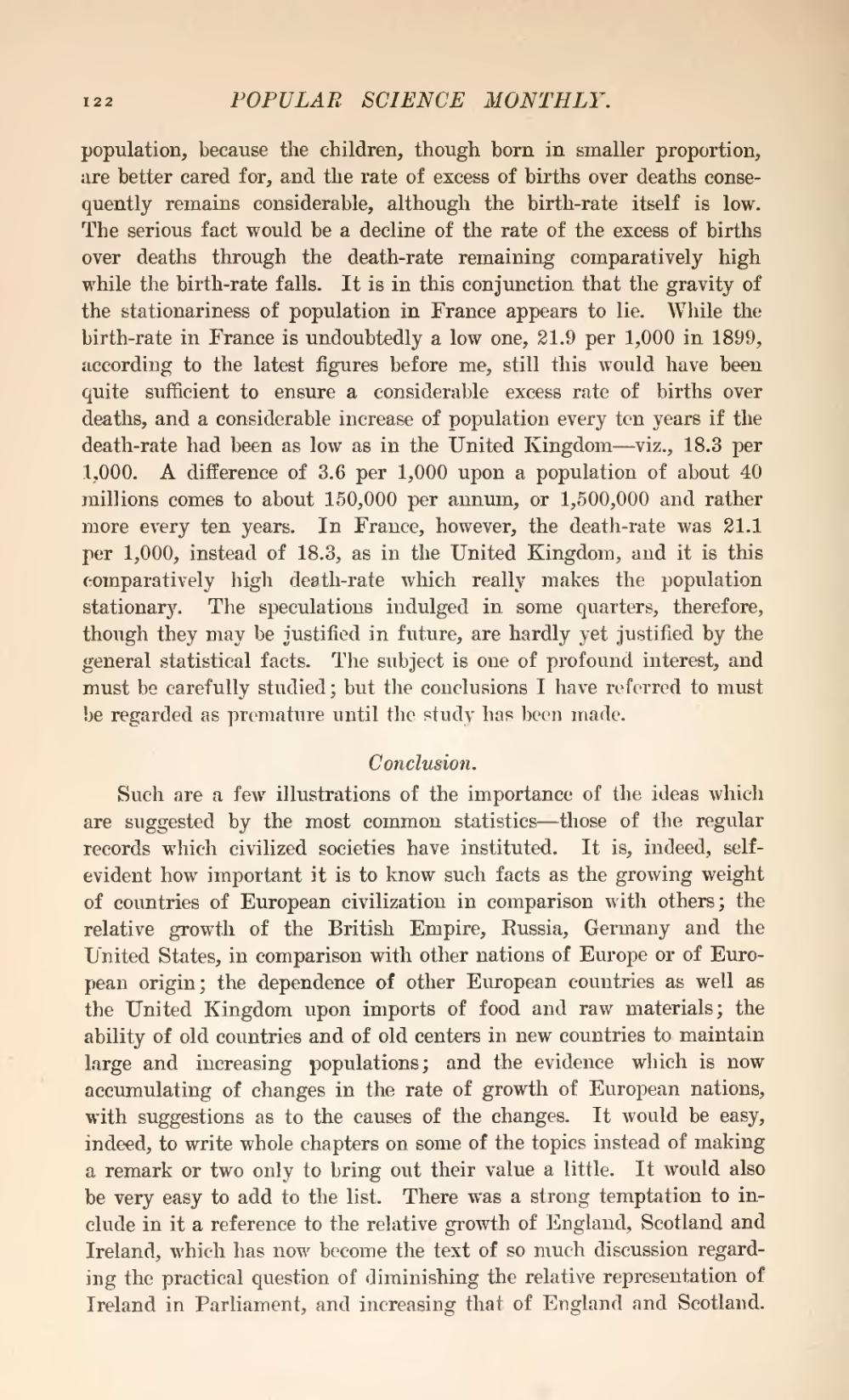population, because the children, though born in smaller proportion, are better cared for, and the rate of excess of births over deaths consequently remains considerable, although the birth-rate itself is low. The serious fact would be a decline of the rate of the excess of births over deaths through the death-rate remaining comparatively high while the birth-rate falls. It is in this conjunction that the gravity of the stationariness of population in France appears to lie. While the birth-rate in France is undoubtedly a low one, 21.9 per 1,000 in 1899, according to the latest figures before me, still this would have been quite sufficient to ensure a considerable excess rate of births over deaths, and a considerable increase of population every ten years if the death-rate had been as low as in the United Kingdom—viz., 18.3 per 1,000. A difference of 3.6 per 1,000 upon a population of about 40 millions comes to about 150,000 per annum, or 1,500,000 and rather more every ten years. In France, however, the death-rate was 21.1 per 1,000, instead of 18.3, as in the United Kingdom, and it is this comparatively high death-rate which really makes the population stationary. The speculations indulged in some quarters, therefore, though they may be justified in future, are hardly yet justified by the general statistical facts. The subject is one of profound interest, and must be carefully studied; but the conclusions I have referred to must be regarded as premature until the study has been made.
Conclusion.
Such are a few illustrations of the importance of the ideas which are suggested by the most common statistics—those of the regular records which civilized societies have instituted. It is, indeed, self-evident how important it is to know such facts as the growing weight of countries of European civilization in comparison with others; the relative growth of the British Empire, Russia, Germany and the United States, in comparison with other nations of Europe or of European origin; the dependence of other European countries as well as the United Kingdom upon imports of food and raw materials; the ability of old countries and of old centers in new countries to maintain large and increasing populations; and the evidence which is now accumulating of changes in the rate of growth of European nations, with suggestions as to the causes of the changes. It would be easy, indeed, to write whole chapters on some of the topics instead of making a remark or two only to bring out their value a little. It would also be very easy to add to the list. There was a strong temptation to include in it a reference to the relative growth of England, Scotland and Ireland, which has now become the text of so much discussion regarding the practical question of diminishing the relative representation of Ireland in Parliament, and increasing that of England and Scotland.
